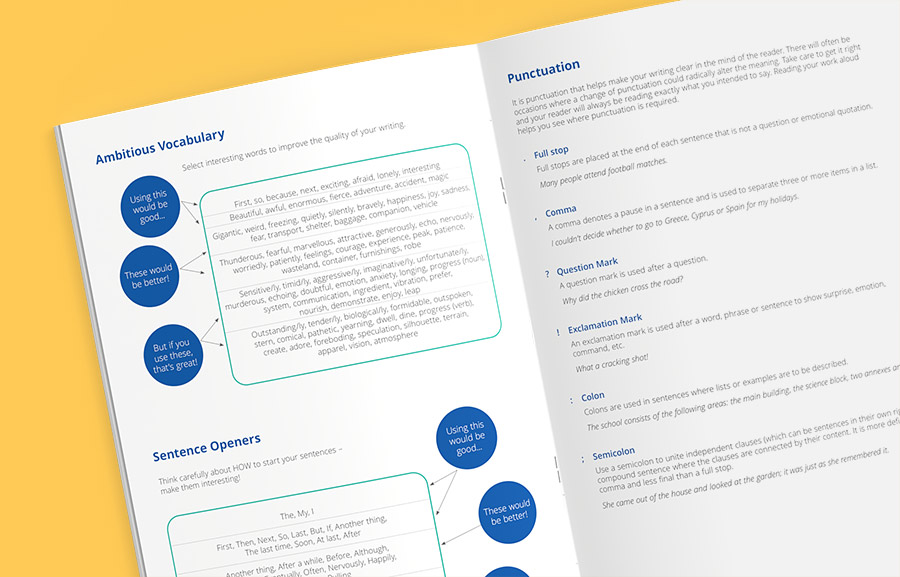Education’s ultimate goal is to foster understanding, cultivate skills, and promote personal and academic growth. Integral to this process is the Assessment of Learning. Different assessment techniques, including formative and summative assessments, allow educators to gauge student comprehension and progress. Yet, beyond these traditional methods, there are other valuable tools to optimise the assessment process. One such tool is the use of subject-specific exercise books. Let’s delve deeper into how these specialised resources can bolster learning assessment and why they are becoming increasingly significant in modern education.

The Landscape of Learning Assessment
Every assessment in education aims to measure the breadth and depth of students’ understanding, their skills, and their ability to apply knowledge. While formative and summative assessments offer snapshots of these understandings at different times and depths, subject-specific exercise books provide continuous support, bridging gaps and reinforcing knowledge.
Formative Assessments: Learning in Progress
Formative assessments, often likened to “checkpoints,” act as crucial markers along a student’s educational pathway. Rather than being the finish line, these assessments represent key moments of reflection, akin to pit stops in a race, ensuring that the student remains on track. By providing immediate and timely feedback, they serve a dual purpose.
For educators, they offer a real-time snapshot of student comprehension, highlighting the efficacy of their teaching methodologies and indicating if any adjustments are needed. For students, these assessments shine a light on their grasp of the material, allowing them to understand their strengths and pinpoint areas that may be stumbling blocks. In essence, formative assessments are not merely tests; they are strategic tools, fostering an environment of continuous feedback, adaptation, and growth..
Key Features of Formative Assessments:
Immediate Feedback:
These assessments are real-time checks, allowing students to understand their areas of strength and areas they need to work on.
Informal Nature:
They might come in the form of quizzes, group discussions, journal entries, or in-class assignments.
Facilitate Adjustments:
Based on the results, educators can modify their teaching strategies to address specific needs.
Summative Assessments: The Final Verdict
While formative assessments act as intermittent guideposts during the course of instruction, summative assessments stand as the comprehensive finale, marking the conclusion of a particular learning chapter. They’re analogous to the grand finale of a theatrical performance, encapsulating all the acts that came before it.
Summative assessments don’t just test isolated segments of knowledge, but instead aim to measure a student’s holistic grasp of the entire curriculum presented over a specific timeframe. Whether it’s the culmination of a chapter, unit, term, or even an entire academic year, these assessments are designed to gauge the depth and breadth of a student’s understanding. In essence, they provide educators, students, and often stakeholders like parents, a panoramic view of a student’s achievements, challenges, and overall progress.
Key Features of Summative Assessments:
Formal and Structured:
These usually come in the form of final exams, standardized tests, end-of-term projects, or research papers.
Measure of Overall Achievement:
They give a comprehensive view of a student’s understanding of the subject matter.
Used for Grading Purposes:
Summative assessments often significantly influence the final grades of students.
What is Formative and Summative Assessment in the Real World?
It’s imperative to delve beyond the theoretical understanding of assessments and appreciate their tangible applications in real-world educational contexts. These assessments, whether formative or summative, aren’t just abstract concepts but are tools with concrete uses that directly impact the teaching and learning processes.
For example, consider a teacher navigating her way through a challenging curriculum. As she progresses, she might intersperse her lessons with formative assessments, like short quizzes or group discussions. These not only gauge the students’ immediate grasp of recent lessons but also provide the teacher with feedback on her teaching methods. Is the pace too fast? Are certain topics proving problematic? Such assessments serve as valuable diagnostic tools, enabling real-time course corrections.
As the term progresses and the content accumulates, the shadow of the looming summative assessment, such as an end-of-term exam, begins to manifest. This isn’t just a test of the students’ knowledge, but also a reflection of the efficacy of the teaching throughout the term. It encapsulates the entirety of what students have imbibed and provides a broader perspective on their learning trajectory.

The Role of Subject-Specific Exercise Books in Learning Assessment
In the multifaceted world of education, the instruments and methodologies utilised often determine the depth and breadth of student understanding. Amidst the arsenal of educational tools, subject-specific exercise books have carved out a niche for themselves, promising tailored learning experiences that cater to individualised needs.
Unlike generic workbooks, these exercise books delve deep into the intricacies of each subject, ensuring that every topic, no matter how complex, is accessible and engaging for students. Through a blend of meticulous design and pedagogical insight, these resources stand as a testament to how specialised tools can revolutionise the learning assessment landscape.
Reinforce Subject Mastery:
These books offer exercises targeting the specific skills and knowledge areas inherent to a particular subject. For instance, a mathematics exercise book might contain drills on algebraic expressions, while a literature exercise book might offer prompts for thematic essays.
Provide Consistent Feedback:
Just as formative assessments offer insights during the learning journey, subject-specific exercise books can give ongoing feedback. Students can gauge their proficiency levels as they work through exercises, recognizing areas that need further attention.
Support Differentiated Learning:
These books can be tailored to cater to various skill levels, allowing for differentiation. Students can be directed to specific sections or exercises based on their current understanding, ensuring they’re always challenged appropriately.
Complement Formative and Summative Assessments:
While separate, the work done within subject-specific exercise books can informally align with the themes and objectives of larger assessments. For example, if a formative assessment reveals a class-wide struggle with a particular topic, educators can use exercises from these books to provide extra practice.

Benefits in the Real World
In the dynamic setting of a classroom, the importance of learning assessment is increasingly recognized. Amidst this realization, subject-specific exercise books shine as indispensable tools for evaluating and facilitating learning. These aren’t just a collection of exercises but are meticulously curated repositories that cater to the specific demands and nuances of each subject. They not only capture the essence of the subject but also act as vital instruments in the learning assessment process.
Educators today face the challenge of presenting content that offers both depth and breadth. These exercise books present a harmonious blend, diving deep into subjects for a comprehensive understanding while also spanning the vast curriculum. For instance, a history-focused exercise book could traverse ancient civilizations to modern global conflicts, and for science educators, it might merge foundational physics principles with the latest in biotechnology.
More than content, these books are designed for active learning and accurate learning assessment. Their exercises vary from straightforward recall questions to intricate analytical tasks, catering to a wide spectrum of student proficiencies. Such a layered approach guarantees that students, from beginners to experts, are assessed and challenged according to their capabilities.
A Holistic Approach to Learning Assessment
In today’s intricate educational landscape, adopting a holistic view is imperative, especially when it comes to accurate learning assessment of student performance. With a plethora of pedagogical strategies and resources at our disposal, the significance of a diverse toolkit to holistically evaluate student learning becomes evident.
Subject-specific exercise books stand out as pivotal elements in this educational paradigm. Far from being mere practice tools, they represent thoughtfully curated resources, keenly focused on the subtleties of individual subjects. Be it navigating the challenges of calculus or dissecting the layers of literary interpretations, these books facilitate in-depth exploration and mastery.
Supplementing these tailored resources are the enduring strategies of formative and summative assessments. The former provides continuous insights, reflecting the dynamic progression of a student’s educational journey, while the latter offers a conclusive appraisal, encapsulating the breadth and depth of knowledge garnered over a set timeframe. Collectively, these instruments create a robust framework for learning assessment, ensuring a comprehensive understanding of a student’s academic trajectory.
Elevate Your Assessment Game: Dive into Custom Exercise Books!
Designed with educators in mind, custom exercise books bridge knowledge gaps, reinforce subject mastery, and offer dynamic ways to measure student progress.